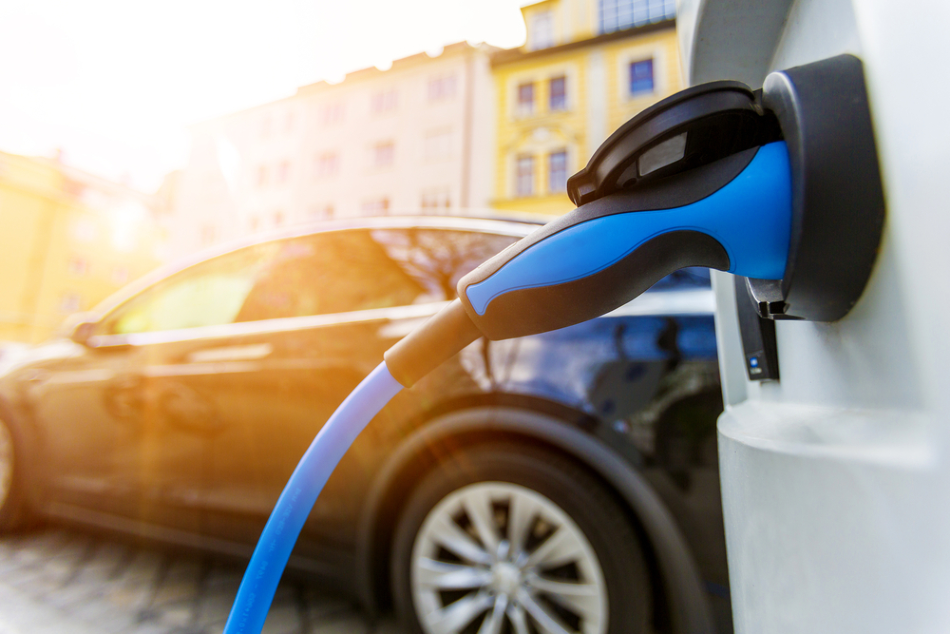
Image Credit: moreimages/Shutterstock.com
Electric vehicles are emerging as a cleaner alternative to conventional vehicles powered by fossil fuels, but practicality issues have hampered the widespread adoption of these new alternatives. Chief among them is the length of time it takes to charge a depleted battery. While it only takes a few minutes to fill a conventional vehicle's gasoline tank, it can take much longer to fully charge the currently available electric vehicles – up to an entire day for some models.
To address this issue, an Estonian energy storage company called Skeleton Technologies has partnered with the Karlsruhe Institute of Technology (KIT) in Germany to complete the development of a cutting-edge electric vehicle battery that could be fully charged in just 15 seconds.
What is the SuperBattery?
With charging cycles numbering in the hundreds of thousands, the SuperBattery is a promising prospect for addressing the three foremost issues related to electric vehicle use: long charging times, battery deterioration and concerns about vehicle range.
According to reports, the SuperBattery is a hybrid system that merges standard lithium-ion cells and Skeleton Technology's proprietary ultracapacitor cells. The main factor that differentiates the SuperBattery from similar systems is the Curved Graphene material that is used to make the ultracapacitors. As with other ultracapacitors, the SuperBattery does not have enough energy density to be a total replacement for lithium-ion batteries.
A lithium battery can store a great deal of energy, but they have a relatively low power density, which translates to long charge and discharge cycles. This is a major stumbling block for electric vehicles and a critical bottleneck for the burgeoning industry.
Ultracapacitors are charged and discharged via static electricity, compared to batteries charged through a chemical reaction. Therefore, ultracapacitors can charge and discharge at much greater rates than chemical batteries and function for much longer without deteriorating. However, ultracapacitors have a very low energy density. To hold the same energy quantity, a storage device made from ultracapacitors would have to be much larger than a lithium-ion battery.
Also put forward by other organizations, the lithium-ultracapacitor hybrid solution can function across a broad range of temperatures. In an electric vehicle, this energy storage solution would capture a charge both through a charging station and via regenerative braking.
Ultracapacitors are coming through as a promising alternative to lithium-ion battery packs for electric vehicles. For instance, Tesla recently acquired ultracapacitor manufacturer Maxwell Technologies to improve battery technology in its vehicles.
Despite having a much lower energy density than typical electric vehicle batteries, the SuperBattery may be well-suited for hybrids, plug-in vehicles or hydrogen fuel vehicles. It could augment the primary battery in all-electric vehicles during acceleration or other demanding situations. Theoretically, it could prolong battery life and reduce the cooling demands of current battery packs.
Skeleton Technologies' energy-saving ultracapacitor solutions for port cranes
Video Credit: Skeleton Technologies/YouTube.com
The Promise of High-Density Supercapacitors
The SuperBattery is not the only potential electric vehicle battery technology being developed by Skeleton Technologies and others. There is a massive buzz around high-density supercapacitors, which can charge and discharge quickly while having a storage capacity that rivals lithium-ion batteries.
In May, Skeleton technologies announced it had hired a new chief technology officer who would lead the effort to develop ultracapacitor technology. In announcing the hiring of Daniel Weingarth, Skeleton CEO Taavi Madiberk said: “As an industry, we are at a stage where lithium-ion batteries were in 1999. A breakthrough in energy density will be game-changing.”
Microvast Europe's Ultra-Fast-Charging Power Cell for EVs
Other companies have already been pursuing this energy storage technology. According to reports, Chinese company Shenzhen Toomen New Energy has developed a supercapacitor with the same energy density as lithium batteries. To advance the Power Capacitor technology, the Chinese company has partnered with Kurt.energy – a division of the Belgium energy research company Altreonic NV. According to a press release from the division, the technology can generate energy densities ranging from 80 to 230 Wh/kg – similar to lithium-ion batteries.
The Power Capacitor is based on a hybrid design that merges a lithium-ion battery and a standard carbon-based supercapacitor. It has one lithium electrode and one graphene-variant electrode. As with the SuperBattery, Power Capacitors charge via static electricity, making for rapid charging and discharging. The lithium electrode does impart a small storage effect as seen in a chemical battery, but unlike in a lithium-ion battery, the lithium-ions are not free-flowing. This avoids one of the most significant issues with lithium-ion batteries: the formation of potentially explosive dendrites. Furthermore, a rupturing of the battery will not cause a chemical leak.
According to reports, Power Capacitor cells are currently in production, and the companies behind them are awaiting funding so they can bring them to scale.
Find out more about equipment calibration and testing equipment on the market today
References and Further Reading
Skeleton Technologies. Skeleton and KIT are developing a new graphene battery charging in 15 seconds. [Online] Available at: https://www.skeletontech.com/news/skeleton-and-kit-are-developing-a-new-graphene-battery-charging-in-15-seconds
Skeleton Technologies. Skeleton Technologies’ new CTO Dr. Daniel Weingarth up to the challenge of delivering ten times higher levels of energy density. [Online] Available at: https://www.skeletontech.com/news/skeleton-technologies-new-cto-dr.-daniel-weingarth-up-to-the-challenge-of-delivering-ten-times-higher-levels-of-energy-density
Kurt.energy. Press release: new power capacitor pouch cell @ 230 Wh/kg – 972 Wh/dm3. [Online] Available at: https://kurt.energy/press-release-new-power-capacitor-pouch-cell-230-wh-kg/
Blain, L. High-density hybrid powercapacitors: A new frontier in the energy race. New Atlas. [Online] Available at: https://newatlas.com/energy/toomen-powercapacitors-kurt-energy-high-density-supercapacitors/?itm_source=newatlas&itm_medium=article-body
Disclaimer: The views expressed here are those of the author expressed in their private capacity and do not necessarily represent the views of AZoM.com Limited T/A AZoNetwork the owner and operator of this website. This disclaimer forms part of the Terms and conditions of use of this website.